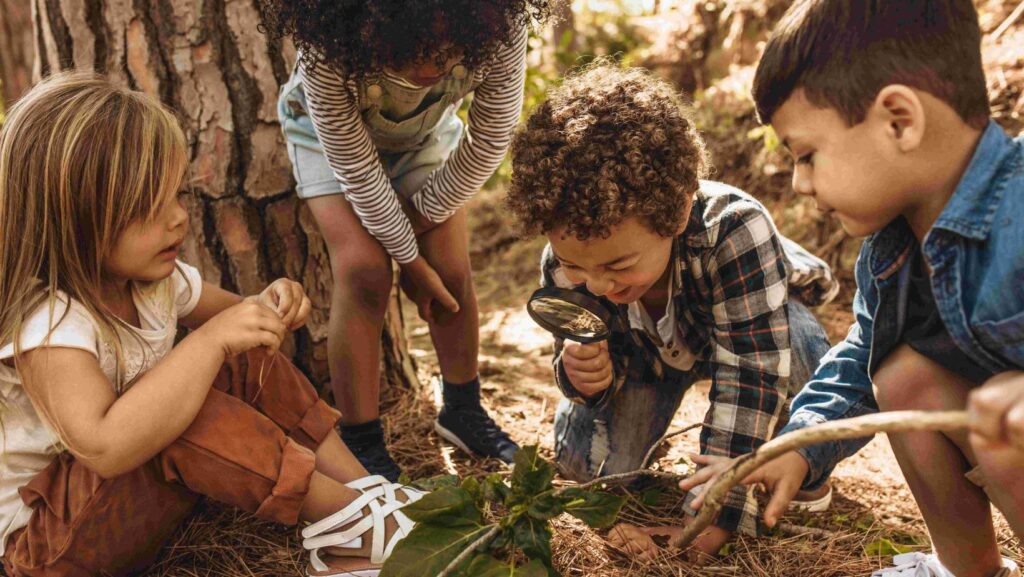Outdoor play is a vital part of childhood that supports both physical and emotional growth. When children play outside, they discover new things, use their imagination, and develop key skills. These experiences help shape their well-being and learning in the early years.
This article will explain why outdoor play is so important during childhood and how it contributes to a child’s healthy development. Read on to learn more.
Improves Physical Health
Outdoor play is one of the best ways for children to stay physically active. Running, climbing, jumping, and balancing are natural movements that help kids grow stronger. These activities build muscles, improve balance, and boost overall fitness.
Playing outside also means children get fresh air and sunshine. Sunlight provides vitamin D, which helps strengthen bones. Fresh air supports better breathing and keeps them energized. Additionally, outdoor play helps reduce the risk of childhood obesity by keeping children active. Early habits of playing outside can set the stage for a lifetime of good health. More in-depth info can be found here regarding the benefits of outdoor physical activity on physical health.
Boosts Cognitive Development
Playing outdoors is not just fun—it helps children learn, too. Nature is full of surprises, which inspires curiosity and creative thinking. For example, when children explore a garden or a park, they might wonder how plants grow or how insects live. This kind of thinking supports brain development and problem-solving skills.
Also, outdoor play can improve focus. Children who spend more time outside often show better concentration, especially when it’s time to learn or complete tasks. The unstructured, open nature of outdoor play encourages creativity and independent thinking, helping children develop strong minds.
Builds Social Skills
Outdoor play is a great way for children to make friends and practice social skills. Whether they’re playing tag, building sandcastles, or organizing a game, children learn to work together, share, and communicate. These social interactions help them understand how to cooperate and solve problems with others.
For instance, when kids decide who takes the next turn on the swing or figure out how to play a new sport or game, they are learning important life lessons. These experiences teach patience, empathy, and negotiation, which are valuable skills they will need as they grow older.
Supports Emotional Well-being
Playing outdoors has a positive effect on a child’s emotional health. Being outside allows children to explore freely and build confidence. When they achieve small victories, like climbing a tree or riding a bike, it boosts their self-esteem.
Nature also helps children manage stress and feel calmer. The fresh air, natural sounds, and outdoor space create a peaceful setting where kids can relax. Playing outside gives them the chance to release energy, which can lead to fewer emotional outbursts and more stable moods.
Encourages Safe Risk-Taking
Outdoor play allows children to take safe risks, which is important for their personal growth. Climbing, jumping, or balancing on uneven surfaces teaches kids to assess risks and challenge themselves within safe limits. While these activities may seem dangerous, they teach children how to make decisions, handle challenges, and overcome obstacles.
When children fall and get back up, they learn perseverance. This skill helps them become more resilient and willing to try again when things don’t go as planned. Building resilience at a young age prepares them to handle challenges in the future.
Builds a Connection with Nature
Outdoor play also helps children develop a connection with nature. When kids play outside, they become more aware of the world around them. They start to notice plants, animals, and the changing weather, which helps them appreciate the environment.
This early connection with nature can also lead to a sense of responsibility for the planet. For example, children who enjoy outdoor activities like gardening or observing wildlife may grow up to care more about protecting the environment. Learning to love and respect nature at a young age can shape how they treat the world as adults.
Transitioning Playtime Outdoors
It’s easy to encourage outdoor play with a few simple steps. Parents and caregivers can gradually introduce outdoor activities. Organizing fun outdoor games, such as scavenger hunts or nature walks, can help children get excited about spending time outside. These activities not only keep children engaged but also support their early learning and development in a relaxed, open space.
Once children become comfortable with outdoor play, they often start asking to go outside on their own. By making outdoor play a regular part of their routine, children will enjoy the fresh air and fun activities without much prompting.
Conclusion
Outdoor play plays a crucial role in a child’s growth. It helps them stay healthy, build social connections, and explore the world around them. Time spent outside is a perfect way for kids to grow stronger, smarter, and more emotionally balanced. Encouraging children to spend time outdoors will give them the tools they need to succeed both now and in the future.



